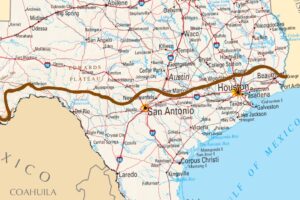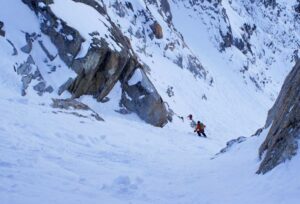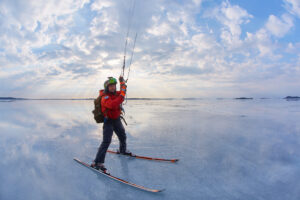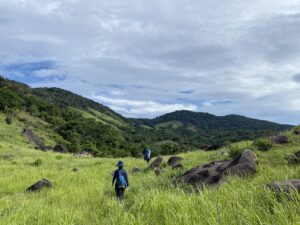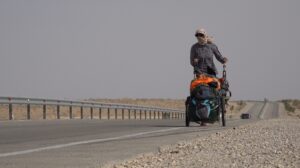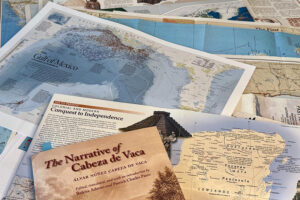On January 4, Lukasz Supergan started a 1,080km trek across his native Poland. Beginning in the Izerskie Mountains, he combined several long trails so that he could hike across the Polish Mountains and end at the Ukrainian border. After 48 days and 16 hours, he reached the Bukowka Pass on the Bieszczady Mountains and finished his crossing.
He had initially estimated that it would take 50-60 days, so he was almost exactly on schedule, thanks to many longer-than-expected days. In the first few weeks, the biggest challenge was the low temperatures and high humidity that “steals your heat very fast”. Then heavy snow made the trails almost impossible to find, and he spent hours trail-breaking through knee-deep powder.

Night haven. Photo: @Lukasz Supergan
The trail to Spytkowica Pass, relatively easy in summer, was “a titanic effort” in winter, because of the wet snow, water, mud, and ice. Waves of icy rain added insult to injury as he waded through slush up to his ankles. It was often easier to walk through the trees. Multiple stream crossings left him exhausted. Finally, on February 10, he enjoyed a scheduled treat by staying one night in his own home, which lies close to the trail.
After that one-night vacation, it was back to the grind. Deep snow continued throughout the peaks that make up the Small Pieniny Mountains. As he descended toward the Piwnicznan Zdrój, so much ice lay beneath the snow that “even in crampons, the trail required a balancing act”. That night, he tried to prepare mentally for the days of heavy snow in the forecast.

Slog, slog, slog. Photo: @Lukasz Supergan
The snow cover meant that he couldn’t find the trail in open spaces and was “cutting through snow like huge waves” to get to his next cache at Krynica. He eventually made it and immediately set off again –- now on snowshoes, which are better than skis in deep snow.
As he made his way toward the village of Mochzki, he completely lost the trail and ended up at a river with no bridge. He could see no other way to the village so he decided to cross the river. Since wetting his boots would mean a delay of 24 hours as they dried, he took them off and waded through the knee-deep ice water barefoot. Halfway across, he couldn’t feel his legs anymore, which might have been a blessing in disguise, because at least the numbness masked the chilblains he must have felt.
He crossed the Rotunda Massif and the fields of Zdynia and arrived at the Blue Border Trail. He chose this section specifically for its remoteness, but how would he find the trail? Though he enjoyed snowshoeing through dense forest at first, it quickly fatigued him. Low, ice- and snow-covered branches barred the path, and he was now “moving at a turtle’s pace through something that resembled an ice jungle”.

Ice jungle. Photo: @Lukasz Supergan
He described the moment of finishing as “a great joy… the finale of hundreds of joys and doubts, lots of meetings, and days spent alone.”
He added that his winter crossing taught him what really mattered in the mountains: “mistakes and failures of previous expeditions, progressively building your knowledge, careful planning and anticipating different variants, knowing your capabilities.”

